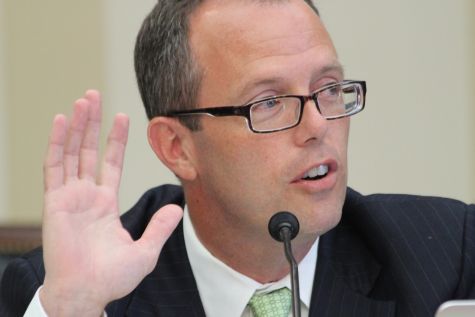 The breadth of the Jack Abramoff lobbying scandal a decade ago brought down 21 lobbyists, government officials and aides. Abramoff served 43 months in prison forconspiring to defraud the government, corruption and defrauding his clients.
The breadth of the Jack Abramoff lobbying scandal a decade ago brought down 21 lobbyists, government officials and aides. Abramoff served 43 months in prison forconspiring to defraud the government, corruption and defrauding his clients.
Abramoff’s former colleague, Kevin A. Ring, thinks it would be hard now to pull off the kind of freewheeling favor-trading that went on in Washington at that time.
“Things are better now, I would have loved this system,” Ring said Friday, speaking at an event hosted by the National Institute of Lobbying and Ethics. “The corruption is so much less than it used to be and there’s so much more transparency.”
He would probably know. A federal jury convicted him in October 2010 on corruption charges in connection with his work with Abramoff and his former boss, Rep. John Doolittle (R-Calif.). Prosecutors said Ring conspired to give Doolittle’s wife a $96,000-per-year part-time job and lavished public officials with gifts to help snare goodies — such as a $16.3 million Justice Department grant for a Mississippi Choctaw tribe — for clients.
He received a sentence of 20 months.
And he is not without remorse. “I exercised poor judgment, but in some ways I exercised no judgment — I didn’t think about it,” Ring said. “I outsourced my integrity. I was on a treadmill and I wasn’t thinking deep thoughts.”
“But did I think something was sketchy? Yeah.”
He got something of a tipoff shortly after he left his Capitol Hill job and arrived at the law and lobbying firm Preston Gates. A fellow partner came into his office, according to Ring, closed the door and said, “Get ready, you’re going to see things that will spin your head around.”
Reflecting back on his time wining and dining public officials, Ring said one reason he was charged was that prosecutors had the firm’s boastful internal emails that cast him and his colleagues — the authors of the messages — in a distinctly unfavorable light.
“No firm in town would have wanted the sausage making to be revealed in that kind of way,” Ring said. “All of the sudden that was quid pro quo fodder.”
Though he’s now vice president of Families Against Mandatory Minimums, Ring’s life was fractured by his prosecution. He was sentenced on his daughter Audrey’s sixth birthday, and he and his wife divorced. With Audrey, now 10, in the audience Friday, Ring said he’d be in debt for the rest of his life.
Ring said new, post-Abramoff regulations including gift limits and increased reporting requirements have improved the industry. They could go further, though: Ring thinks even gifts worth under $50 and the exception for personal friends should be banned, to make the lines even clearer. And campaign finance and lobbying rules could be more in sync.
“I can still give you the $100 through a campaign contribution but not the meal that goes with it,” Ring said. “It gets harder to draw that line then between a quid pro quo thing and a legitimate campaign contribution.”
At the same time, Ring said that in his view, some of the new rules serve no useful purpose. “Quarterly [lobbying] reports? Who gives a crap? Does anyone read these things?” he said. “I think in some ways Congress is trying to show how clean it is to an audience that will never believe it.”
Two weeks ago, the Supreme Court tossed out the bribery conviction of former Virginia Gov. Bob McDonnell, who was charged with taking more than $175,000 in gifts in exchange for favors. The Court’s ruling narrowed what can be considered corruption, saying the behavior has to result in an official government action. Still, even if that had occurred before he was charged, Ring said, “I have no idea if anything would have changed [in my case]…I’ve given up predicting what prosecutors would do.”
Abramoff, the figure at the center of the scandal, also suggested ethical overhauls in his book, such as banning campaign contributions from lobbyists or not allowing public officials to cross into the lobbying industry. Abramoff is slated to speak this fall at a second panel hosted by the National Institute for Lobbying & Ethics, part of a series titled “Confronting The Past In Order to Understand The Future Of Our Profession: The Abramoff Scandal – 10 Years Later.”
